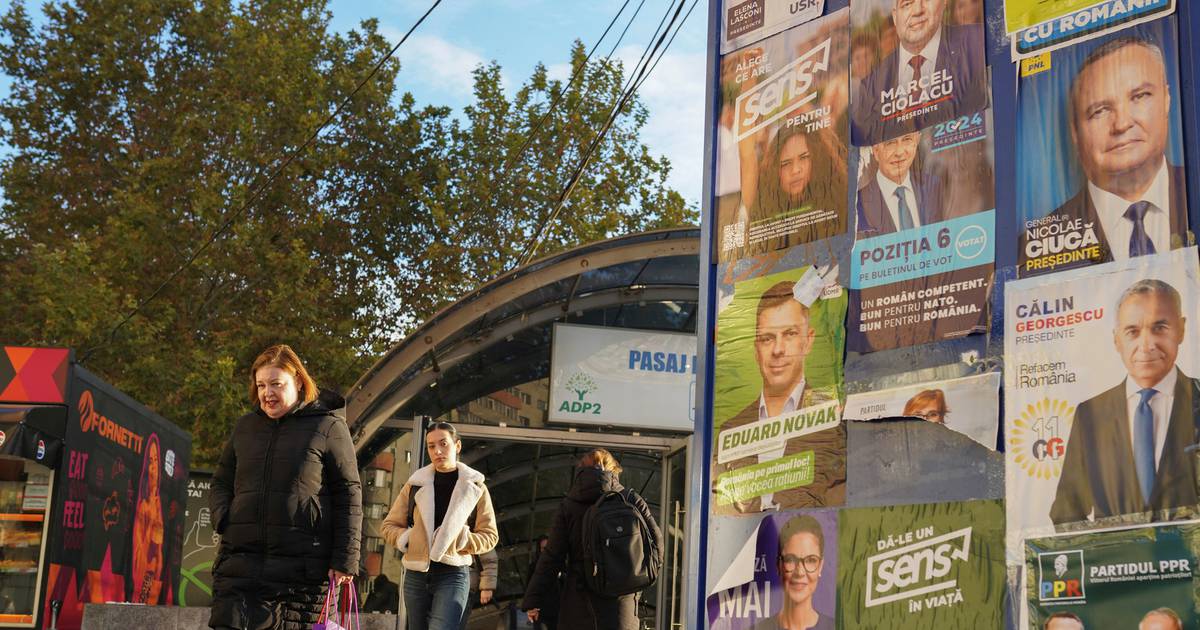Romanians vote in the first round of presidential elections on Sunday, and concerns over the rising cost of living have given right-wing leader George Simion, who opposes sending military aid to Ukraine, the prospect of victory.
If neither candidate receives an absolute majority of the vote, a run-off election will be held on December 8 to replace the two-term president and staunch Ukrainian ally Klaus Iohannis.
Pre-election polls show that Marcel Ciolacu, the 56-year-old prime minister and leader of the Social Democrats (PSD), the largest party in the country, will enter the second round. His most likely rival will be 38-year-old Simion from the Alliance for the Unification of Romania (AUR).
Analysts claim that it is more likely that Ciolaca will win, who appeals to moderate voters and has experience in managing the country while war is raging in the neighborhood, but they do not rule out Simion’s victory either.
The new president will face a slowdown in the European economy, correction of Romania’s budget with the largest deficit in the European Union and pressure to meet NATO’s defense spending targets during Donald Trump’s second term as US president. .
Outsider
Since Russia invaded Ukraine in 2022, Romania has facilitated the export of millions of tons of iron through its Black Sea port of Constanta and provided military aid to Kiev, including the donation of the Patriot air defense system.
Simion portrays the vote as a choice between an established political class that obeys foreign interests and himself, an outsider who will defend the Romanian economy and sovereignty.
He opposes military aid to Ukraine, and he accused the coalition government of treating refugees better than domestic flood victims. Some political rivals accuse him of being a Russian agent, which he denies.
“I didn’t put my hand in the piggy bank and I’m not stealing your money,” Simion told his supporters this month.
“I am one of you, not one of them. I have always been among the people, talking about closed factories, unemployment, poverty that causes young people to leave the country”.
Europe as a ‘source of income’
Two center-right candidates are also competing: the president of the upper house of the parliament, Nicolae Ciuca, leader of the Liberal Party (PNL), which is in a fragile ruling coalition with PSD, and Elena Lasconi, leader of the opposition party USR .
“The outcome is still very difficult to predict because of the high concentration of candidates and the splitting of votes on the center right,” said Sergiu Miscoiu, a professor of political science at Babes-Bolyai University.
He added that most of the candidates in their election campaigns focused on mostly conservative messages such as protecting family values.
“The candidates of the established parties have very comprehensive messages: on the one hand, the nation, the army, religion, and so on. On the other hand, we see a commitment to Europe, although it is seen more as a source of income than as a value system”.
Romania’s president, limited to two five-year terms, has a semi-executive role that includes commanding the armed forces and presiding over the Supreme Defense Council, which decides on military aid.
The president represents the country at EU and NATO summits and appoints prime ministers, chief judges, prosecutors and heads of secret services.
Iohannis came to power 10 years ago promising to strengthen the fight against corruption in the country
